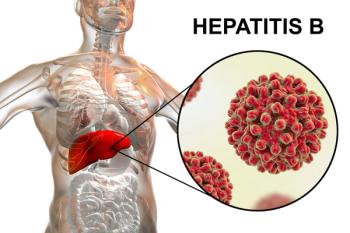
Tecovirimat Predicted to Reduce Mpox Symptom Duration by 6 Days
The use of tecovirimat for monkeypox and other non-variola orthopoxvirus infections is under an expanded access IND protocol, according to the CDC.
According to a new modeling study, the antiviral tecovirimat (TPOXX) was predicted to shorten the duration of mpox symptoms—formerly known as monkeypox—by about 6 days.1
Investigators used a validated model based on data from non-human primates (NHP) and healthy human volunteers, and results also showed that early administration of tecovirimat, at symptom onset, could inhibit replication of the mpox virus in the body by more than 90% after 3-5 days of treatment. Tecovirimat could also demonstrate more than 98% efficacy with continued treatment.1
SIGA Technologies developed tecovirimat, and is a commercial-stage pharmaceutical company focused on the health security market. Health security comprises countermeasures for biological, chemical, radiological and nuclear attacks (biodefense market), vaccines and therapies for emerging infectious diseases, and health preparedness.
Tecovirimat is also maintained in the US Strategic National Stockpile for smallpox. And the use of tecovirimat for monkeypox and other non-variola orthopoxvirus infections is under an expanded access IND protocol, according to the Centers for Disease Control and Prevention (CDC).2
These new data are among the first to support the use of tecovirimat as a post-exposure preventative treatment. Tecovirimat is currently approved in the US for the treatment of smallpox and is approved in the EU for the treatment of both mpox and smallpox.
Mpox Impact
As of November 30, 2023, there have been 31,277 cases and 55 deaths in the United States. The majority of the cases developed during an outbreak that occurred in the summer of 2022.3
In recent months, cases involving a potentially more dangerous strain of mpox that is spread through sexual transmission were observed in the Democratic Republic of Congo (DRC). This recent action has prompted alerts from both the CDC and WHO warning that the disease could again start spreading internationally.
In a previous
References
1. Nguyen BT, Marc A, Suñer C, Marks M, Ubals M, Hernández-Rodríguez Á, et al. (2023) Early administration of tecovirimat shortens the time to mpox clearance in a model of human infection. PLoS Biol 21(12): e3002249. https://doi.org/10.1371/journal.pbio.3002249
2.Tecovirimat. CDC. updated June 7, 2023. Accessed December 21, 2023. https://www.cdc.gov/poxvirus/mpox/clinicians/Tecovirimat.html
3. 2022-2023 U.S. Map & Case Count. Mpox. Updated November 28, 2023. Accessed December 21, 2023. https://www.cdc.gov/poxvirus/mpox/response/2022/us-map.html
Newsletter
Pharmacy practice is always changing. Stay ahead of the curve with the Drug Topics newsletter and get the latest drug information, industry trends, and patient care tips.























